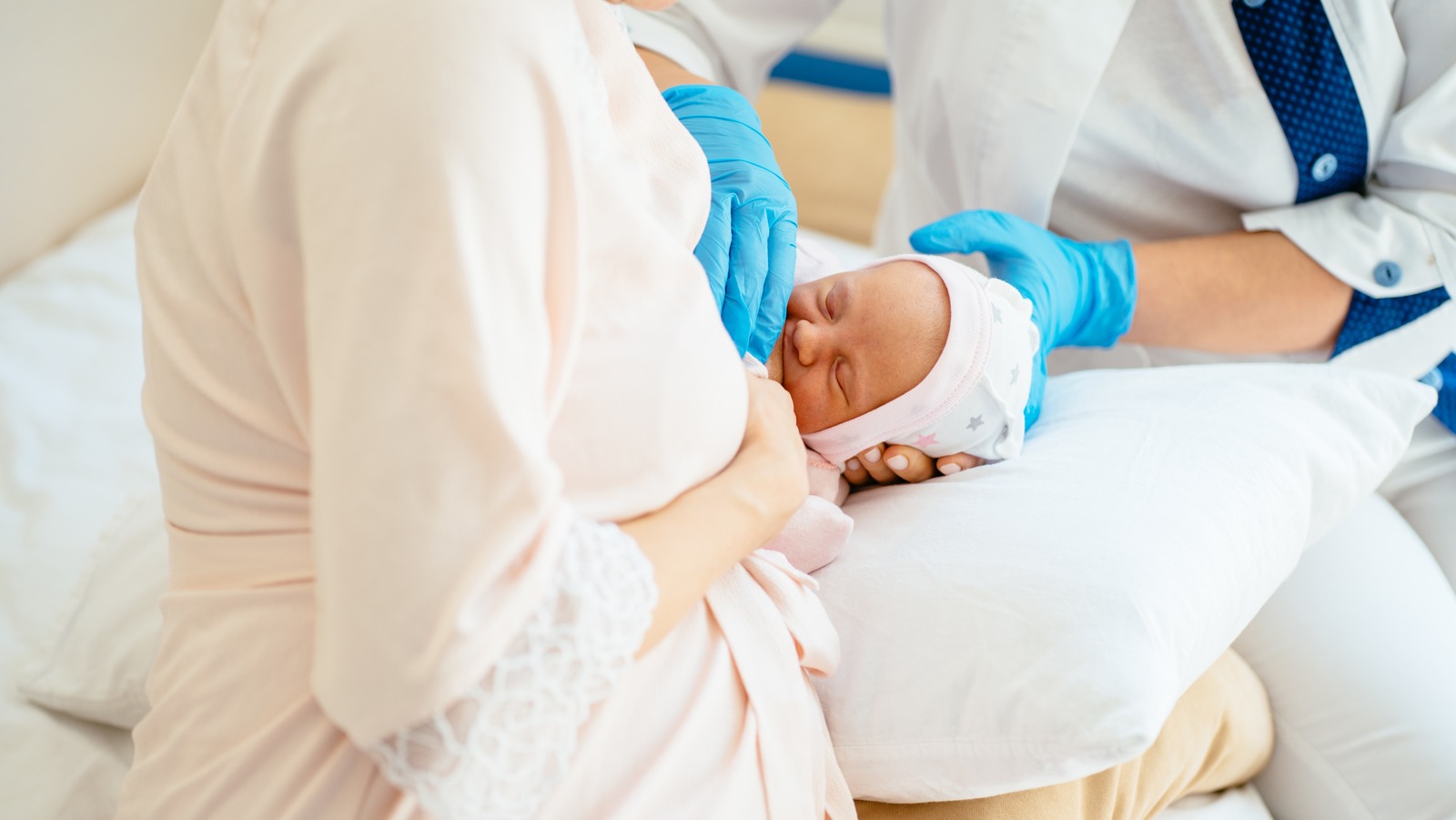[ad_1]

According to the Cleveland Clinic, signs that your body is preparing for lactation begin as early as week 16 of the pregnancy. One sign that you’ll notice is the thickening and darkening of your areolas. You might also notice oil secreting from your Montgomery glands, which are small but noticeable bumps that sit on top of your areola. Your nipples may also become more tender or sensitive as colostrum fluid production occurs. Colostrum is a nutrient-rich fluid that is often called “liquid gold” due to its high concentration of antibodies and other essential nutrients, and this is what your newborn will drink for the first few days after birth. Some women may experience leakage of colostrum or milk from their breasts during pregnancy or in the early postpartum period.
Within 3-5 days after giving birth, you’ll probably notice your breasts producing more milk — at this point, the colostrum transitions into mature milk. You may also notice changes in your baby’s feeding behavior. Your baby may be eager to feed more frequently, and their suckling (and the stimulation of nerve endings in the nipple) signals the brain to produce the hormone prolactin. This then stimulates the milk glands in the breast to produce more milk.
As milk production increases, you may experience breast engorgement, where the breasts become swollen and uncomfortable due to excess milk — this usually happens between days 3 and 5 of breastfeeding but may continue until the 10th day, according to the Children’s Hospital of Philadelphia.
[ad_2]
Source link
